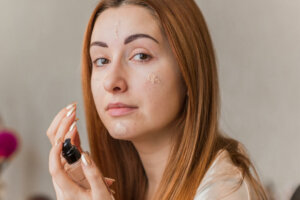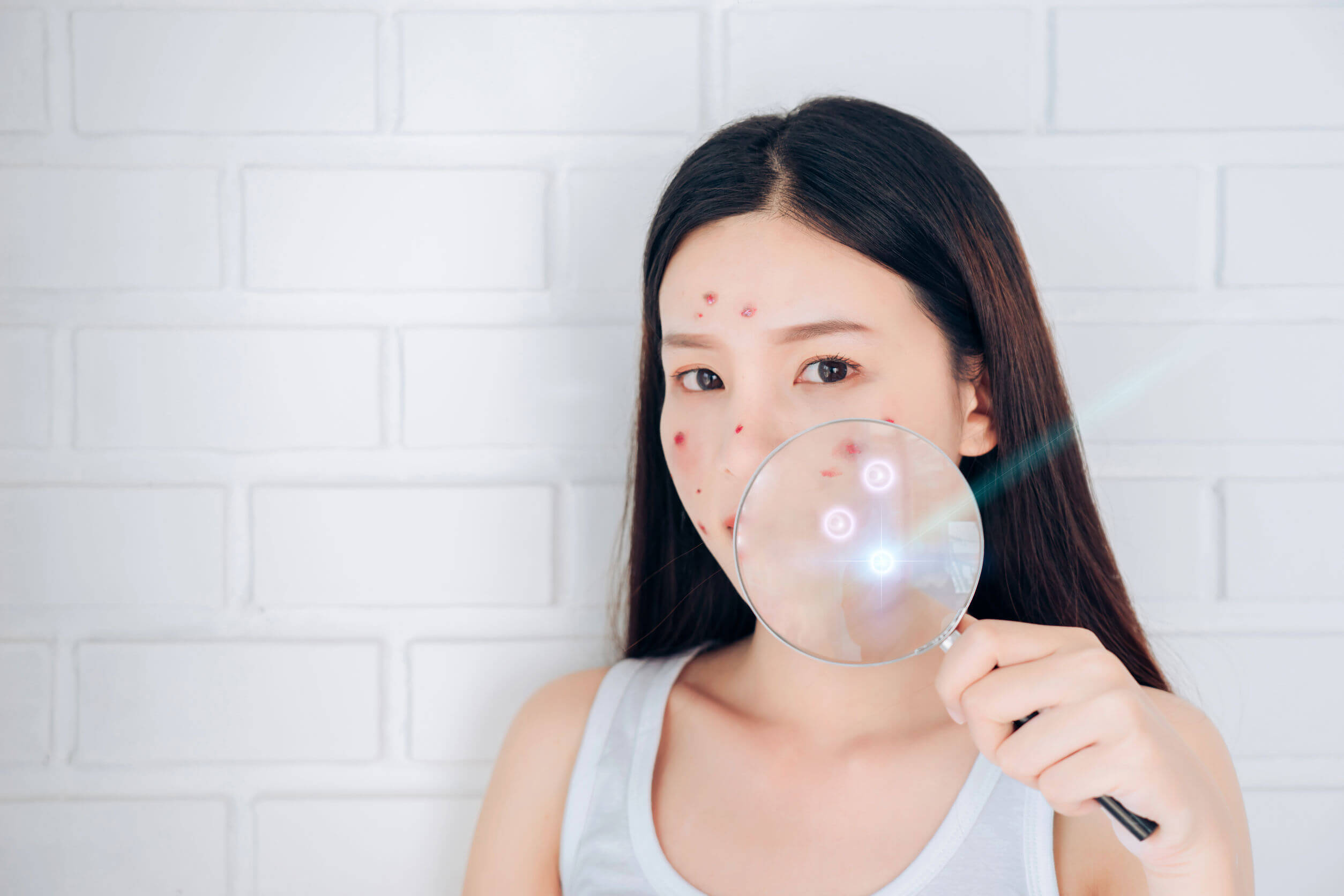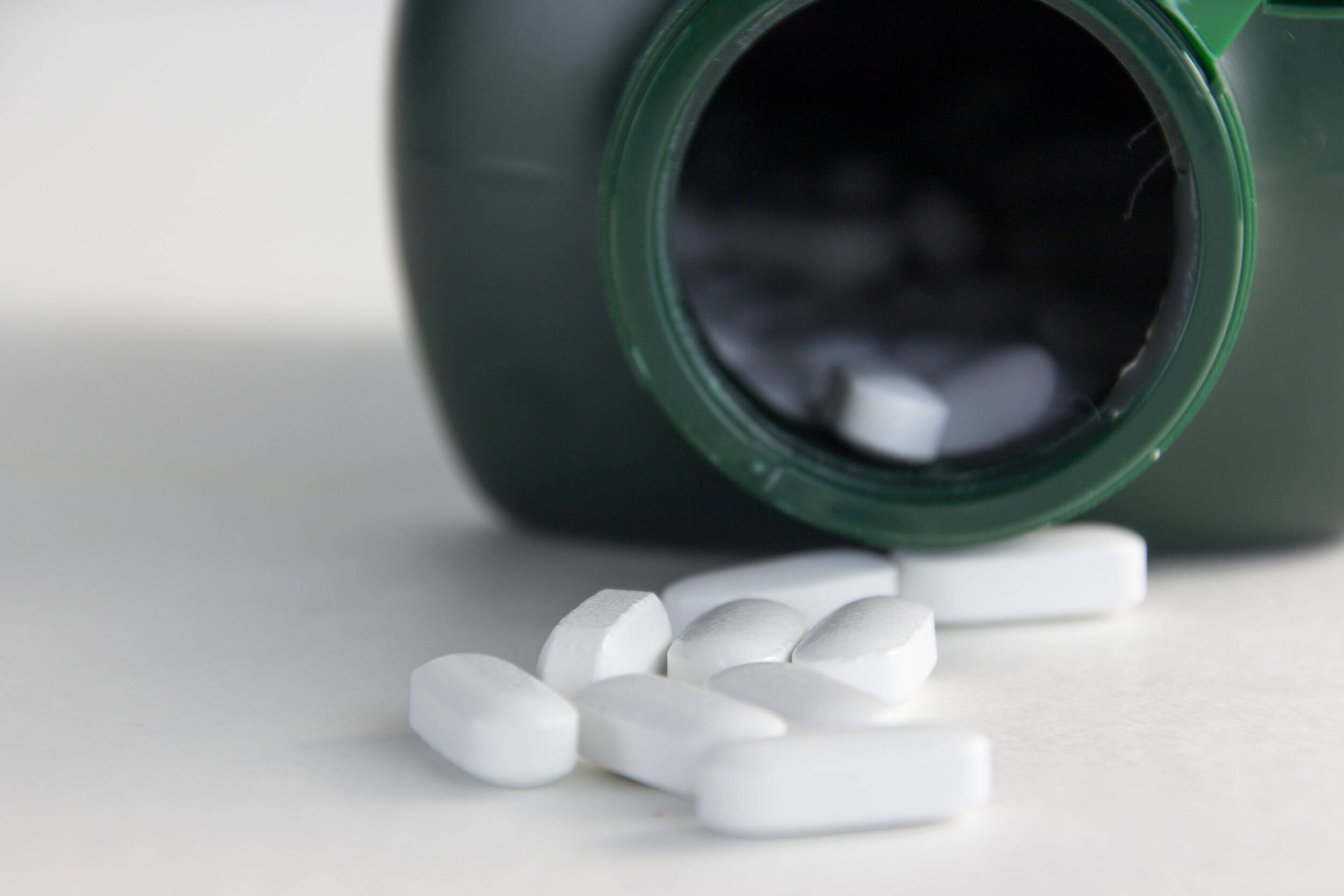The Cases of Acne: What You Need to Know

Acne is one of the most common aesthetic problems in society, although it’s true that not everyone gives it the same importance. Even so, to a greater or lesser extent, it constitutes a reason for concern and frequent dermatological consultation. Therefore, it’s important to be aware of the causes of acne.
Although for a long time, the belief that acne was a condition that only affected people during adolescence prevailed, today we know that anyone can experience it at some point in their life. Likewise, we know that although hormones seem to exert some influence on their appearance, they’re not the only factor we should take into account.
Classification and symptoms

Depending on how it affects the skin, acne’s classified in two different ways, which are as follows:
- Non-inflammatory: This type is characterized by causing the presence of comedones (open -black- or closed -white-) on the skin.
- Inflammatory: In this case, acne’s characterized by causing papules, pustules; and in more serious cases, nodules and cysts.
Triggers and causes of acne
Neither chocolate, nor dairy, nor poor cleaning are solely “responsible” for pimples and comedones. Actually, acne’s a multifactorial problem. This means that its appearance is influenced by various factors, both internal and external.
As stated in the MSD Manual and other sources, acne’s considered to be caused primarily by the interaction of 4 factors, such as:
- Excessive sebum production
- Plugging of the follicles with sebum and keratinocytes
- The colonization of the follicles by Cutibacterium acnes (formerly known as Propionibacterium acnes )
- The release of multiple inflammatory mediators
Common triggers
Hormonal fluctuations, perspiration, smoking, poor diet, and other factors can play a role in exacerbating flare-ups. For this reason, it’s common, in the colloquial sphere, for them to be identified as causes of acne, even when that’s not exactly the case. Rather, they’re triggers.
A high level of humidity, the use of certain medications (such as antidepressants, antiepileptics, and steroids), a poor diet, the use of hygiene and cosmetic products that aren’t suitable for your skin type, prolonged exposure to the sun, emotional stress, and constant manipulation of the skin are other more common acne triggers.
Dietary factors
It’s important to note that although the consumption of sausages, dairy products, seafood, chocolate, and sources that are rich in sugars and carbohydrates has been pointed out as a factor of great influence in the appearance of outbreaks, these aren’t exclusive.
The relationship between diet and acne continues to be the subject of study. For this reason, there are no feeding guidelines applicable to all cases, but rather recommendations based on what each patient refers to in consultations with their doctor. Therefore, if a person notices that dairy exacerbates their breakouts in their case, they can try reducing them in their diet to improve the health of their skin.
- It’s not a good idea to drastically eliminate foods from your diet without consulting a specialist first.
- It’s also important to always bear in mind that although making some changes in your diet can help you improve the health of your skin, this measure, on its own, isn’t enough to treat acne.
Treatment

Today, in the treatment of acne, what’s sought is to reduce its extent, control breakouts, improve healing and skin health, and also alleviate the psychological impact. Therefore, it’s no longer uncommon for dermatologists to work in conjunction with psychologists.
As Dr. Rocío Gil Redondo indicates, there are several therapeutic options for acne. In some cases, certain topical treatments may be helpful, while in others, combine several strategies may be necessary.
Some of the most common are chemical peels, dermabrasion, laser, topical retinoids (alone or with a topical antibiotic, or benzoyl peroxide), and biophotonic therapy.
A common misconception in treating acne is believing that daily sun protection or the use of moisturizers produces more oil and, therefore, breakouts.
However, the opposite is usually recommended, that is, dermatologists recommend using sunscreen daily and using a moisturizer. The trick is to choose non-comedogenic products that are specially designed for acne.
Changes in treatment must be coordinated in advance with a dermatologist to avoid mistreating the skin and worsening breakouts.
Acne, a problem that shouldn’t be neglected
If you believe that you have acne, it’s best to go to the dermatologist’s office for a check-up. Then, you can receive the most appropriate treatment and prevent the problem from getting worse or leaving marks and scars.
While it may be tempting to try to “fix” acne on your own with home remedies and cleanings, over-the-counter products, and other similar measures, keep in mind that these aren’t always effective. Don’t forget that each person’s skin is different and that you need to be well-informed about the particular needs of your own skin in order to offer it the most appropriate care.
Finally, remember that treatment doesn’t eliminate acne overnight. Although you may notice improvements within a few days, don’t forget that it’s a process in which you have to maintain consistency to obtain a real benefit, which is healthier and more beautiful skin.
Acne is one of the most common aesthetic problems in society, although it’s true that not everyone gives it the same importance. Even so, to a greater or lesser extent, it constitutes a reason for concern and frequent dermatological consultation. Therefore, it’s important to be aware of the causes of acne.
Although for a long time, the belief that acne was a condition that only affected people during adolescence prevailed, today we know that anyone can experience it at some point in their life. Likewise, we know that although hormones seem to exert some influence on their appearance, they’re not the only factor we should take into account.
Classification and symptoms

Depending on how it affects the skin, acne’s classified in two different ways, which are as follows:
- Non-inflammatory: This type is characterized by causing the presence of comedones (open -black- or closed -white-) on the skin.
- Inflammatory: In this case, acne’s characterized by causing papules, pustules; and in more serious cases, nodules and cysts.
Triggers and causes of acne
Neither chocolate, nor dairy, nor poor cleaning are solely “responsible” for pimples and comedones. Actually, acne’s a multifactorial problem. This means that its appearance is influenced by various factors, both internal and external.
As stated in the MSD Manual and other sources, acne’s considered to be caused primarily by the interaction of 4 factors, such as:
- Excessive sebum production
- Plugging of the follicles with sebum and keratinocytes
- The colonization of the follicles by Cutibacterium acnes (formerly known as Propionibacterium acnes )
- The release of multiple inflammatory mediators
Common triggers
Hormonal fluctuations, perspiration, smoking, poor diet, and other factors can play a role in exacerbating flare-ups. For this reason, it’s common, in the colloquial sphere, for them to be identified as causes of acne, even when that’s not exactly the case. Rather, they’re triggers.
A high level of humidity, the use of certain medications (such as antidepressants, antiepileptics, and steroids), a poor diet, the use of hygiene and cosmetic products that aren’t suitable for your skin type, prolonged exposure to the sun, emotional stress, and constant manipulation of the skin are other more common acne triggers.
Dietary factors
It’s important to note that although the consumption of sausages, dairy products, seafood, chocolate, and sources that are rich in sugars and carbohydrates has been pointed out as a factor of great influence in the appearance of outbreaks, these aren’t exclusive.
The relationship between diet and acne continues to be the subject of study. For this reason, there are no feeding guidelines applicable to all cases, but rather recommendations based on what each patient refers to in consultations with their doctor. Therefore, if a person notices that dairy exacerbates their breakouts in their case, they can try reducing them in their diet to improve the health of their skin.
- It’s not a good idea to drastically eliminate foods from your diet without consulting a specialist first.
- It’s also important to always bear in mind that although making some changes in your diet can help you improve the health of your skin, this measure, on its own, isn’t enough to treat acne.
Treatment

Today, in the treatment of acne, what’s sought is to reduce its extent, control breakouts, improve healing and skin health, and also alleviate the psychological impact. Therefore, it’s no longer uncommon for dermatologists to work in conjunction with psychologists.
As Dr. Rocío Gil Redondo indicates, there are several therapeutic options for acne. In some cases, certain topical treatments may be helpful, while in others, combine several strategies may be necessary.
Some of the most common are chemical peels, dermabrasion, laser, topical retinoids (alone or with a topical antibiotic, or benzoyl peroxide), and biophotonic therapy.
A common misconception in treating acne is believing that daily sun protection or the use of moisturizers produces more oil and, therefore, breakouts.
However, the opposite is usually recommended, that is, dermatologists recommend using sunscreen daily and using a moisturizer. The trick is to choose non-comedogenic products that are specially designed for acne.
Changes in treatment must be coordinated in advance with a dermatologist to avoid mistreating the skin and worsening breakouts.
Acne, a problem that shouldn’t be neglected
If you believe that you have acne, it’s best to go to the dermatologist’s office for a check-up. Then, you can receive the most appropriate treatment and prevent the problem from getting worse or leaving marks and scars.
While it may be tempting to try to “fix” acne on your own with home remedies and cleanings, over-the-counter products, and other similar measures, keep in mind that these aren’t always effective. Don’t forget that each person’s skin is different and that you need to be well-informed about the particular needs of your own skin in order to offer it the most appropriate care.
Finally, remember that treatment doesn’t eliminate acne overnight. Although you may notice improvements within a few days, don’t forget that it’s a process in which you have to maintain consistency to obtain a real benefit, which is healthier and more beautiful skin.
- Arias-Gómez MI, Chías-Rubí AE, Adame-Miranda GJ. La importancia de la dieta en el acné. Dermatol Rev Mex. 2019;63(Supl. 1):S3-S17.
- Davidovici BB, Wolf R. The role of diet in acne: facts and controversies. Clin Dermatology | Elsevier [Internet]. 2010 [cited 2021 Jul 7];28:12–6. Available from: http://centrespringmd.com/wp-content/uploads/2013/05/The-Role-of-Diet-in-Acne.pdf
- Keri JE. Acné – Trastornos de la piel – Manual MSD versión para público general [Internet]. Manual MSD- Versión para público general. [cited 2021 Jul 7]. Available from: https://www.msdmanuals.com/es/hogar/trastornos-de-la-piel/acné-y-trastornos-relacionados/acné
- Gómez-Flores M, Chávez-Álvarez S. Asociaciones hormonales del acné y tratamiento. Dermatología, Rev Mex [Internet]. 2019 [cited 2021 Jul 7];63(1):25–32. Available from: https://www.medigraphic.com/pdfs/derrevmex/rmd-2019/rmds191d.pdf
- Guerra Tapia A, de Lucas Laguna R, Carlos Moreno Giménez J, Pérez López M, Miquel Ribera Pibernat I, Martínez Prats E, et al. Consensus in the topical treatment of acne [Internet]. Vol. 43, Med Cutan Iber Lat Am. 2015 [cited 2021 Jul 7]. Available from: https://www.medigraphic.com/cgi-bin/new/resumenI.cgi?IDARTICULO=61833
Este texto se ofrece únicamente con propósitos informativos y no reemplaza la consulta con un profesional. Ante dudas, consulta a tu especialista.







